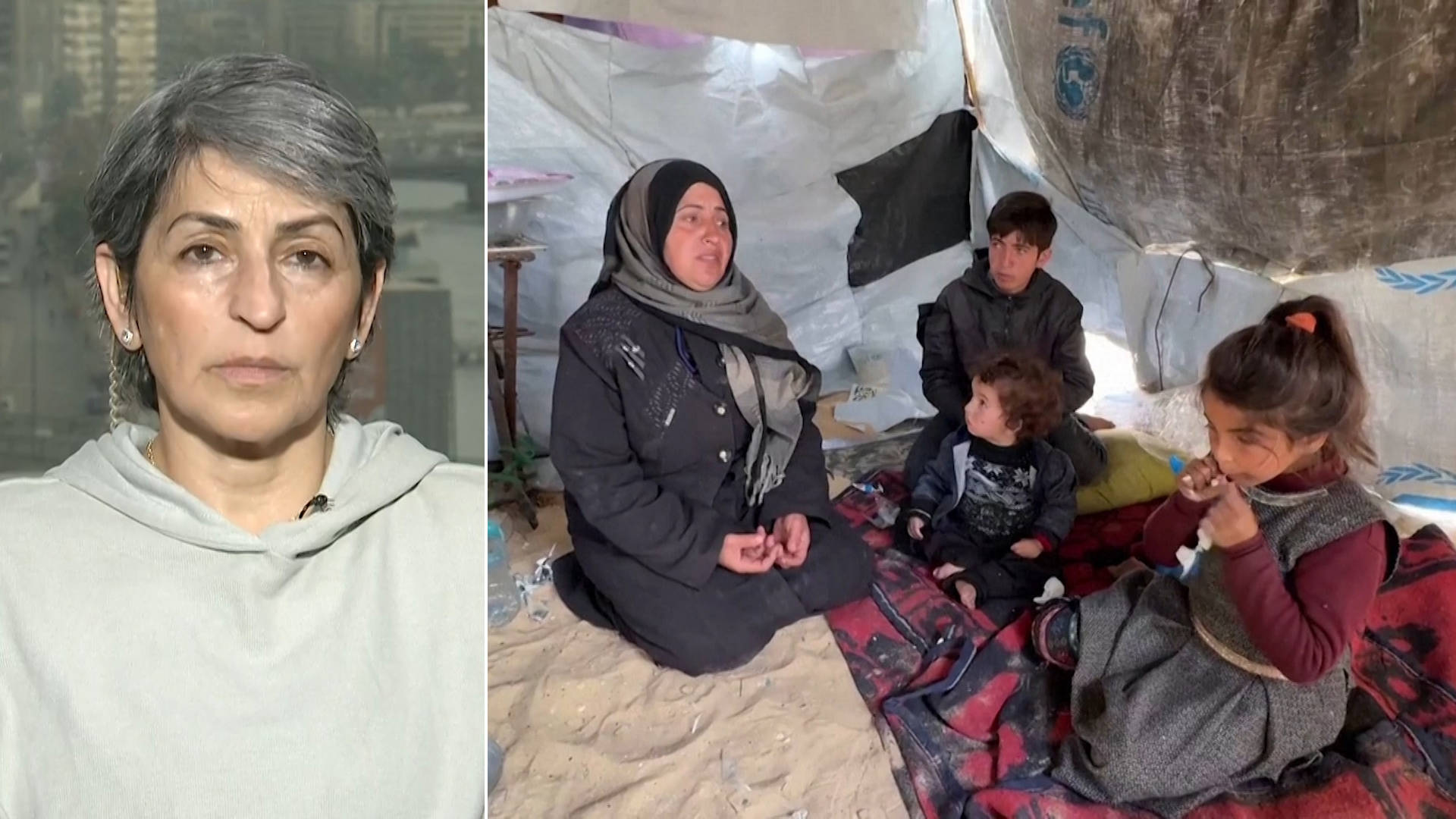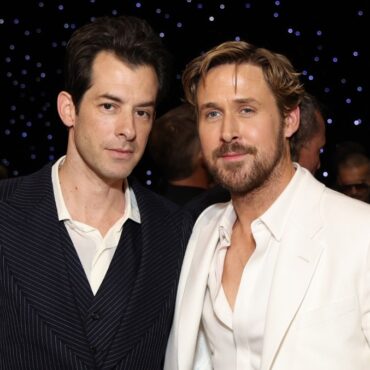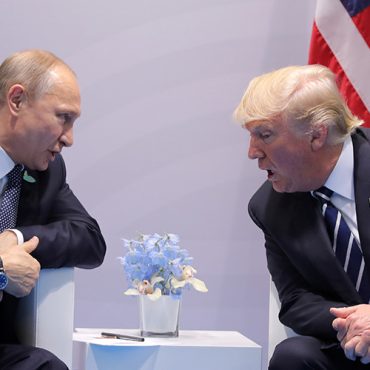This is a rush transcript. Copy may not be in its final form.
AMY GOODMAN: This is Democracy Now! I’m Amy Goodman.
Israel is continuing its attacks on Gaza as Palestinians mark the first day of Ramadan. The death toll from Israel’s five-month assault has topped 31,000.
For more the situation on the ground in Gaza, we turn to Part 2 of our conversation with the Palestinian novelist, poet and activist Susan Abulhawa. She is the author of a number of books, including her debut novel Mornings in Jenin. She’s founder and co-director of Playgrounds for Palestine, a children’s group, and the executive director of Palestine Writes Literature Festival. She joined us last week from Cairo, Egypt, one day after she returned from a two-week trip to Gaza. I asked her about the level of trauma that the children in Gaza are experiencing.
SUSAN ABULHAWA: The trauma is immeasurable, frankly, not just for children, but for everybody. I spoke with a lot of women, in particular, who were recovering in a hospital or were there — or, you know, being with their children who were recovering. The stories they told me are just — are out of like a Hollywood horror film. I mean, there are — I have photos of the backs of men where Israeli soldiers carved pictures, smiley faces, Stars of David, etc., in their skin. These women narrated stories to me of, you know, Israeli soldiers laying them — laying hundreds of women on the ground and then taking their guns with the laser and laughing, and then wherever the laser landed, they shoot.
I spoke with a woman whose 3-year-old daughter had both of her legs shattered, and she was in the hospital recovering. It was an intentional — she was intentionally shot by a soldier. And this happened to her daughter after they killed her son, shot him through the head, in what she described as tank fire toying with them for about 30 minutes before they finally delivered the final blow that took her son.
People being forced to walk from hospitals, severe injuries, people being forced to walk for hours to get to safety. Children and people, you know, who were fleeing their homes, trying to get to the south, having to walk with their hands up, with their IDs, and if anybody dares to look down or pick anything up, they’re picked off. They’re literally shot by snipers.
The scenes that they narrated to me — I spoke with a little girl who was about 8 years old, whose face was badly burned, but her injuries were the least in the whole family. The entire family had third-degree burns all over their bodies. And what she explained to me, again, you know, I don’t know how a child survives that.
I spent time in a hospital, in a maternity ward, where there were newborns who had either — who were unknown or who were known but whose family was just absent and no longer there, or nobody knows what happened to them. These newborns are spending 24/7, 24 hours a day, seven days a week, in incubators without any human touch, really, except when they come to feed them, because the nurses and the doctors are so exhausted and so overworked. People are being discharged from hospitals with wounds and going into tents where they don’t have running water and proper hygiene, and they’re getting horrible infections and dying from sepsis.
You know, life on the beach, you know, the beach is where Palestinians used to go for fun, to love, to be with family. And it’s torture now, because a lot of tents are pitched in the sand, and the sand is in everything. People’s skin is scorched. I mean, children walk around with cracked cheeks from the sun and sand. The sand gets in every bite of food.
The food that does come in, into Rafah, is primarily canned food. And most of it — and I think you hinted at this earlier, and I’ve seen it and tasted it myself — it is stuff that has clearly been sitting on shelves for decades. And all you can taste, really, is the rancidity, metallic taste of the can.
You know, this is — people schedule their days, they plan their days around trying to get to a single shared bathroom that’s shared by hundreds of other families. They try to do their best with hygiene, but it’s impossible. And when you have — when people succumb to living in filth, people — you know, I think maybe people in the West sort of have this impulse thought that most Black and Brown people sort of live like this. So it’s a little humiliating to have to explain that we don’t actually live in filth. And it’s degrading, beyond anything you can imagine, to be forced to live like this months on end, to have no way to protect your children, no way to give them hope, no way to calm their fears.
You know, there’s no privacy in the tents, because, you know, there’s not enough tents for families. So families are actually separated, with, you know, dozens of women in one tent and dozens in another. So spouses cannot even hold each other at night when they need that care the most. It’s these details that are traumatizing en masse for children, for parents, for elderly.
People don’t have medicines. People are dying from lack of insulin, which, by the way, Israel has banned from coming into Gaza. And they’re dying from diarrhea, because they’re drinking polluted water, and Israel has also banned water treatment, water filtration systems, even handheld ones, simple personal water filtration systems that, you know, Americans use when they go camping.
The degradation is total, Amy. And on top of that, they’re bombed, day in and out, even in Rafah. When I was there, there was not a single night that we didn’t hear bombs, and at least once was close enough that the building I was in shook, and we thought our building had actually been hit. But it was the one — it was one over from where I was. And there was another moment, too, when a tent by a hospital, where we had just been, was bombed. They bombed a tent. And it actually happened to be the tent that is adjacent to the tent that Bisan Owda was in. And they were sitting, eating. They were sitting on the ground eating, and shrapnel just came above their heads.
AMY GOODMAN: Palestinian novelist, poet, and activist Susan Abulhawa. Her debut novel, Mornings in Jenin, was translated into 32 languages. She joined us last week from Cairo, Egypt, one day after she returned from Gaza. To see Parts 1 and 2 of our interview with her, go to democracynow.org. I’m Amy Goodman. Thanks so much for joining us.











Post comments (0)